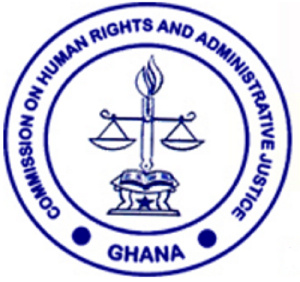- Home - News
- Polls
- Year In Review
- News Archive
- Crime & Punishment
- Politics
- Regional
- Editorial
- Health
- Ghanaians Abroad
- Tabloid
- Africa
- Religion
- Election 2020
- Coronavirus
- Photo Archives
- News Headlines
- Press Release
General News of Wednesday, 27 July 2022
Source: GNA
CHRAJ calls on women to insist on their matrimonial right
The Tema Regional office of the Commission on Human Rights and Administrative Justice (CHRAJ) has advised women to insist on their right to matrimonial property.
Mr John Ato Breboh, the Senior Principal Investigator, Tema Regional Office, said women had the right to matrimonial property when their spouse dies, and they should not allow the families of their husbands to deprive them of that right.
He said this when speaking with the Ebenezer Society of Tema Community one on the topic: “Matrimonial Property Right,” as part of a comprehensive citizen sensitization programme started by CHRAJ Tema Regional Office.
The citizen engagement was to educate them on specific issues of human rights, child marriage, domestic abuse, violence, and other functions of the Commission and empower the public to seek redress in case of infractions on their rights.
Mr Breboh explained that for polygamous marriages, surviving spouses were entitled to equal shares of 50 per cent of the estate, the children, 40 per cent, five per cent to the parent(s), and five per cent to customary devolution.
“A spouse shall have equal access to property jointly acquired during marriage; assets which are jointly acquired during marriage shall be distributed equitably between the spouses upon dissolution of the marriage,” he said.
However, a wife is not legally entitled to her husband's self-acquired property and can only enjoy her husband's self-acquired property till her husband's death; “a wife cannot claim her husband's property before or after divorce at most, a wife can only claim money for her maintenance or alimony”.
The Senior Principal Investigator said CHRAJ wanted to expose residents, especially women to the 1992 Constitution Article 22, “which states that a spouse shall not be deprived of a reasonable provision out of the estate of a spouse whether or not the spouse died having made will or not”.
He stressed that upon divorce, a spouse shall have equal rights to the share of the property that they had acquired.
Mr Breboh advised couples, especially women, to ensure that their marriages were registered and attended by the relatives of both the man and the woman.
Entertainment










